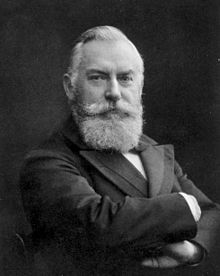Vincenz Czerny
| Vincenz Czerny | |
|---|---|
 |
|
| Born | 19 November 1842 Trutnov, Bohemia, Austro-Hungarian Empire |
| Died |
3 October 1916 (aged 73) Heidelberg, Baden-Württemberg, German Empire |
| Medical career | |
| Profession | Surgeon |
| Specialism | Oncology, gynecology |
Vincenz Czerny (19 November 1842 – 3 October 1916) was a German Bohemian surgeon whose main contributions were in the fields of oncological and gynecological surgery.
Czerny was born in Trutnov, Bohemia, Austro-Hungarian Empire. He initially studied at Karl-Ferdinand University in Prague, later transferring to the University of Vienna, where he was a student of Ernst Wilhelm von Brücke (1819–1892). In 1866 he graduated summa cum laude. Afterwards, he remained in Vienna as an assistant to Johann Ritter von Oppolzer (1808–1871) and Theodor Billroth (1829–1894). In 1871 he became a clinical director at the University of Freiburg.
In 1877 Czerny was appointed professor at Heidelberg, where he succeeded surgeon Gustav Simon (1824–1876). In 1906 he founded the Institut für Experimentelle Krebsforschung (Institute for Experimental Cancer Research), which was a forerunner to today's German Cancer Research Center (DKFZ) in Heidelberg. Here he established a hospital for 47 cancer patients, known as the Samariterhaus (Samaritan House).
Czerny developed operational techniques for cancer surgery. He is also remembered for his treatment of patients with inoperable cancer. In 1887 Czerny performed the first open partial nephrectomy for renal carcinoma.
...
Wikipedia
